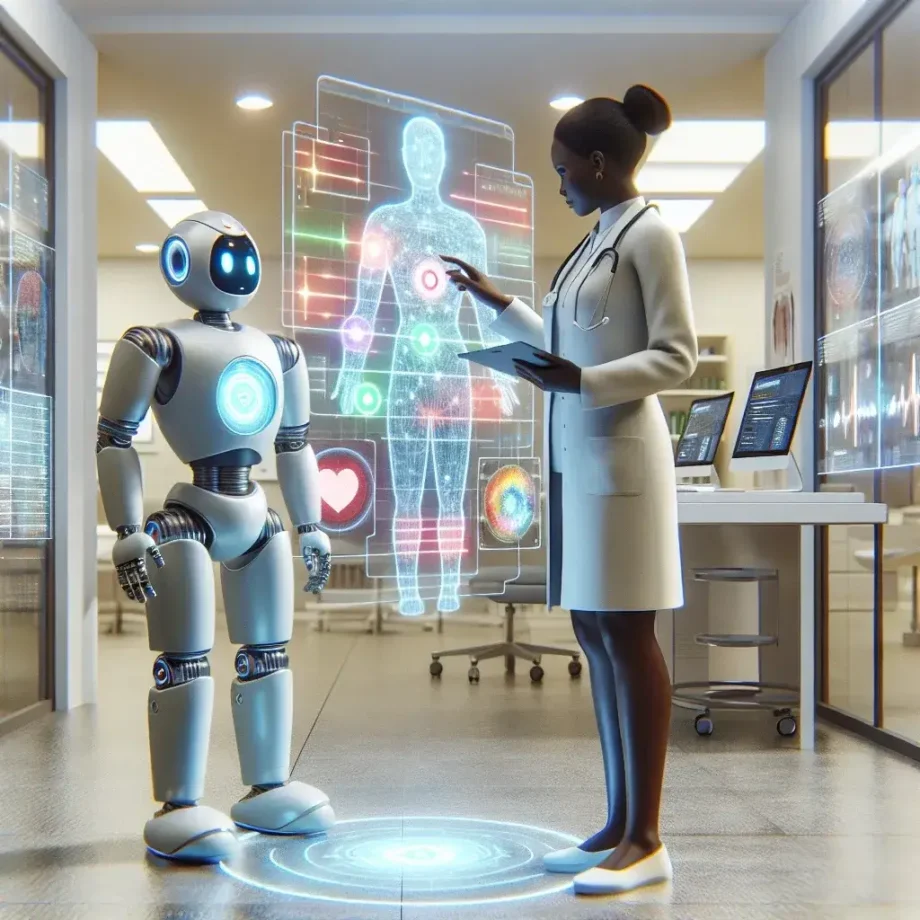
Introduction
The advent of artificial intelligence (AI) has introduced groundbreaking changes across various industries, and healthcare is no exception. AI-powered analytics is transforming how data is collected, analyzed, and utilized, paving the way for enhanced patient care, increased operational efficiency, and improved decision-making processes.
The Role of AI in Healthcare Data
AI systems can process vast amounts of data quickly and accurately, which is essential in healthcare where data volume is ever-increasing. Here are key areas where AI-powered analytics is making an impact:
- Predictive Analytics: AI can analyze historical data to predict future outcomes, helping healthcare providers to anticipate patient needs.
- Patient Segmentation: Through machine learning algorithms, AI can segment patients based on various parameters such as demographics, health conditions, and treatment responses, leading to personalized care.
- Operational Efficiency: AI analytics streamline administrative tasks, reduce waiting times, and optimize resource allocation.
Improving Patient Outcomes
AI-powered analytics enhances patient outcomes in several ways:
- Early Diagnosis: AI can analyze medical imaging and lab results, allowing for faster and more accurate diagnoses.
- Personalized Treatment Plans: By analyzing data from various patients with similar conditions, AI helps in crafting tailored treatment plans that suit individual needs.
- Monitoring and Predictive Maintenance: Continuous monitoring of patient data allows for timely interventions, preventing potential health issues before they escalate.
Case Studies of AI in Healthcare
Several organizations have successfully implemented AI-powered analytics in their operations:
1. IBM Watson Health
IBM Watson leverages AI to assist oncologists in diagnosing cancer and suggesting treatment options based on a patient’s unique genetic makeup and data from previous cases.
2. Google Health
Google Health uses AI to identify diseases like diabetic retinopathy in medical images, improving the accuracy and efficiency of screenings.
3. Tempus
Tempus applies AI in genomics and clinical data to provide insights that help physicians tailor treatments in precision medicine.
Challenges of Implementing AI in Healthcare
Despite its benefits, integrating AI into healthcare systems comes with challenges:
- Data Privacy: Protecting patient information is of utmost importance, and AI systems must comply with regulations like HIPAA.
- Data Quality: The accuracy of AI predictions depends on the quality of the input data. Ensuring high-quality, standardized data is crucial.
- Resistance to Change: Healthcare professionals may be hesitant to adopt AI technologies, necessitating comprehensive training and change management strategies.
The Future of AI-Powered Analytics in Healthcare
As AI technology evolves, so too will its capabilities in the healthcare domain. Future advancements may include:
- Integration with IoT Devices: More interconnected devices will provide real-time data for AI analysis, enhancing patient monitoring.
- Improved Decision Support Systems: AI will continue to advance decision-making tools, assisting healthcare professionals in diagnosing and treating diseases.
- Greater Focus on Preventive Care: AI’s predictive capabilities will shift the focus from reactive to proactive healthcare, emphasizing prevention before illness occurs.
Conclusion
AI-powered analytics is set to revolutionize healthcare by enabling smarter data usage, improving patient outcomes, and enhancing operational efficiency. As technologies continue to develop, it is vital for healthcare organizations to embrace these advancements while addressing the associated challenges to harness the full potential of AI in healthcare.
